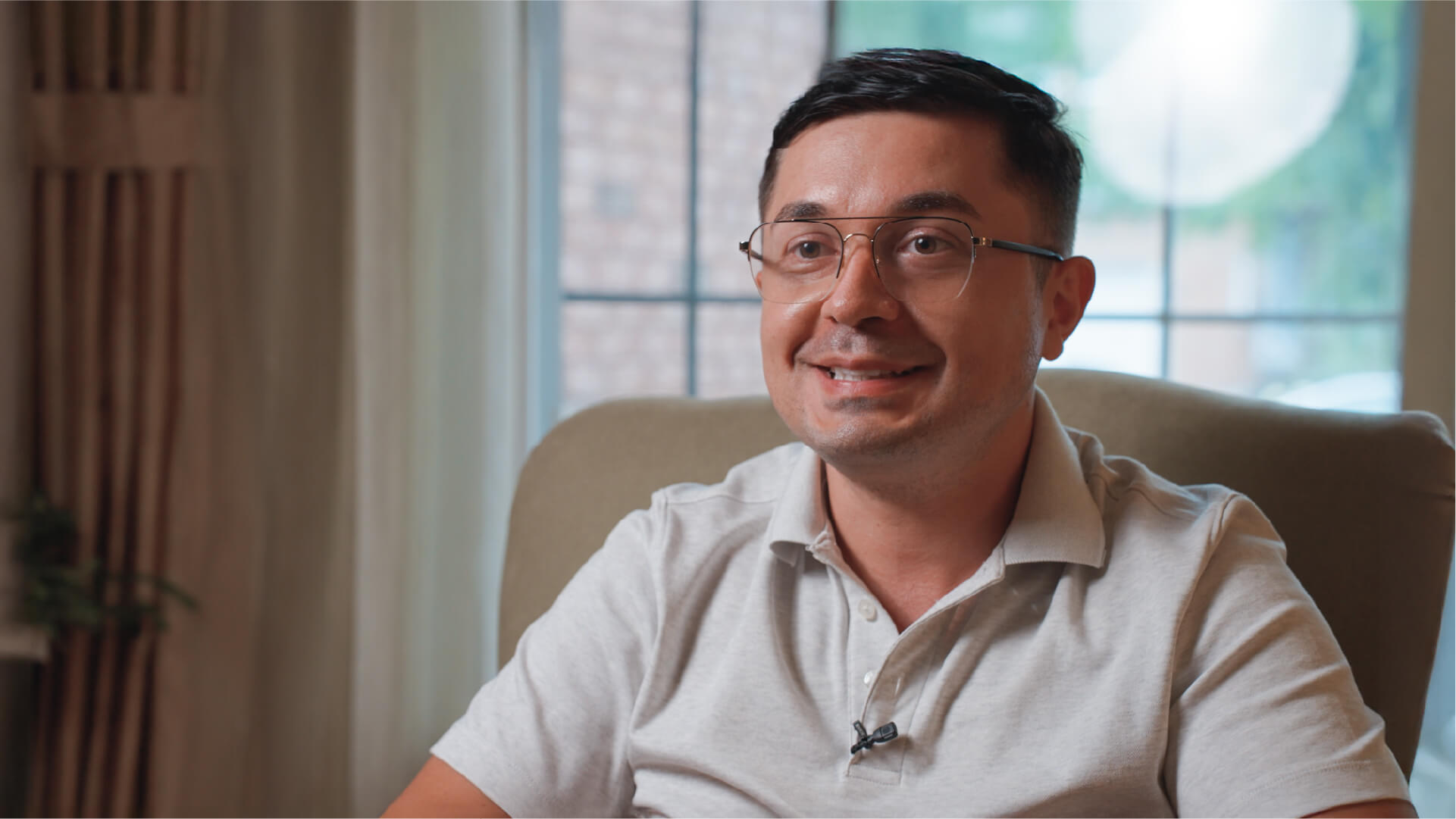Artificial intelligence gets a bad rap for perpetuating bias. Here’s how education innovation is using it to change behaviours
Khiya McElwain (Bachelor of Commerce ’22) woke up before dawn hungry for an omelette when she left her hotel room in search of breakfast.
The Ontario-based accountant was in Timmins, Ont., to tour a local mine for work. It was the nicest hotel in town, the kind with a cooking station specifically for omelettes—prepared to each guest’s tastes by an enthusiastic chef. The station was tucked away in a back area, so McElwain, who is white with blonde hair, asked for directions and was immediately pointed in the right direction by another equally pleasant staff member.
After sitting down to enjoy her meal, McElwain soon overheard another woman ask about the omelette station. But instead of a helpful reply from the same staff member, the woman, who was Indigenous, was asked to produce a room key to prove she was a guest.
“I thought, as a blonde, white woman, I would never be treated like that,” remembered McElwain. “We were clearly being treated differently.”
Harnessing AI to teach about racism, bias
It was an example of racism and unconscious bias that McElwain said she probably would not have noticed a few years earlier—before taking Athabasca University’s ADMN 405 virtual co-op. The course uses generative artificial intelligence to give students a business co-op experience that simulates the real world through interactions with AI characters.
While AI often makes headlines for perpetuating racism, sexism, and stereotypes, AU’s virtual co-op embraces it to teach students how to recognize bias in themselves. Those lessons include a simulation where students work for a bank that’s looking to acquire a new company as part of an overall diversity strategy.
Students can choose which type of fictitious company to work with: a FinTech company based in London, U.K., a Toronto-based company, and an Indigenous-owned company in Regina, Sask.
“The first time we ran the simulation, none of the students chose the Indigenous company,” explained Richard Dixon, the academic coordinator in the Faculty of Business who oversees the virtual co-op.
Virtual interactions apply to real world
The simulation was developed with input from several Faculty of Business colleagues, including Dr. Robert Andrews, program director of Indigenous business at AU.
Alek Golijanin (Bachelor of Commerce ’21) was part of that initial cohort and said he gained new perspective about Indigenous cultures, including about the power of words.
“They introduced me to this idea that Indigenous peoples are not stakeholders; they’re rights holders,” Golijanin said. “That language, it really lit something in my mind where it changes the way you perceive things. There’s this constant learning process.”
Technology made it possible for students to apply knowledge immediately through virtual interactions with AI characters. For example, one of the bank bosses that students work under is a closet racist, explained Dixon. Students had to not only recognize his bias but figure out what to do about it.
“How do you deal with that, because he’s your boss?”
 Bachelor of Commerce grad Alek Golijanin was part of the first ADMN 405 cohort.
Bachelor of Commerce grad Alek Golijanin was part of the first ADMN 405 cohort.
Innovative course continues to iterate
Feedback from students has been overwhelmingly positive, but also helpful for continuing to innovate. Students wanted more focus on working with Indigenous communities so newer interations have included modules with Andrews teaching about cultural sensitivity.
Students were also asked to give presentations to their peers and past alumni about their companies of choice—an example where AI and real-world classroom discussion intersect.
“In getting people to recognize their own biases, it becomes this shift to affective behaviour,” Dixon explained.
In other words, we’re changing people, not just their cognitive skills.
ADMN 405 now features three more AI-powered simulations, including working with a Canadian construction company, being part of a consulting company’s digital transformation unit, and most recently, learning about business sustainability.
McElwain said the lessons she learned through the virtual co-op are still valuable years later in her role with accounting firm EY, and in life.
“The virtual co-op truly changed the way I think, and for the first time, I’m asking what my responsibility is to truth and reconciliation,” she said. “It was life-changing.”